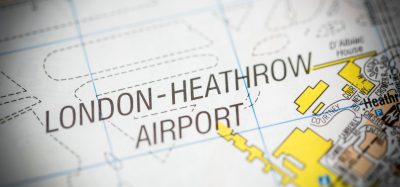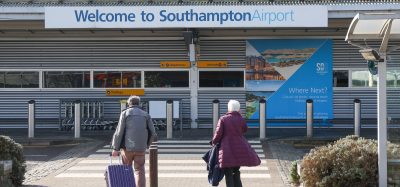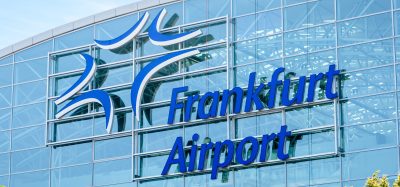Minneapolis – St. Paul International Airport earns highest industry accessibility accreditation by ACI
- Like
- Digg
- Del
- Tumblr
- VKontakte
- Buffer
- Love This
- Odnoklassniki
- Meneame
- Blogger
- Amazon
- Yahoo Mail
- Gmail
- AOL
- Newsvine
- HackerNews
- Evernote
- MySpace
- Mail.ru
- Viadeo
- Line
- Comments
- Yummly
- SMS
- Viber
- Telegram
- Subscribe
- Skype
- Facebook Messenger
- Kakao
- LiveJournal
- Yammer
- Edgar
- Fintel
- Mix
- Instapaper
- Copy Link
Posted: 13 July 2023 | International Airport Review | No comments yet
Minneapolis – St. Paul International Airport (MSP) has earned the highest level of accreditation for passenger accessibility by ACI.
Minneapolis – St. Paul International Airport (MSP) has earned the highest level of accreditation for passenger accessibility by Airports Council International (ACI), a global organisation representing more than 1,900 airports in 170 countries.
MSP earned Level 3 accreditation through ACI’s new Accessibility Enhancement Accreditation programme, which launched in the last year. The programme is based on international best practices and recommendations across multiple areas of accessibility: policies, infrastructure design, organisational operations, innovative technologies and customer experience programmes. Accreditation lasts three years.
“On behalf of the entire MSP team and our partners, we are honoured that ACI recognised MSP Airport for providing the highest level of airport accessibility,” said Brian Ryks, CEO of the Metropolitan Airports Commission, which owns and operates MSP. “Accessibility is about working collaboratively with our traveling public, our airlines and our business partners to ensure everyone has equal access to the benefits of air travel. MSP has been at the forefront of creating an accessible passenger experience through investing in technology, infrastructure, training and service.”
Accessibility initiatives at MSP have been guided by expertise and support from the travellers with Disabilities Advisory Committee (TDAC). Established in 2014, TDAC consists of community disability advocates, airport staff, and representatives from airlines, their contractors and the Transportation Security Administration. Andrew Palmberg, who represents the Minnesota Commission for the Deaf, Blind and Hard of Hearing, serves as chair.
TDAC provides feedback on how the MAC designs facilities and manages programmes to remove barriers for people with disabilities while elevating the overall experience for all travellers and airport users.
“We frame every customer experience improvement by prioritising how it impacts all travellers, especially people with disabilities or reduced mobility,” said Phil Burke, MAC assistant director, customer experience and TDAC staff liaison. “We’re committed to continuously improving accessibility and addressing service gaps throughout the passenger experience, with the hope these innovations become standard practice across the airport industry.”
Accessibility enhancements in place across MSP experience
MSP offers numerous services that enhance travel accessibility. One of the largest initiatives is the Navigating MSP programme. Created 10 years ago, the programme is a partnership between MSP, Delta Air Lines, Autism Minnesota, Fraser and other local organisations to help passengers with physical or hidden disabilities. Programme participants earn the confidence to fly through pre-flight practice runs in the airport and onboard parked aircraft.
In 2022, MSP debuted a mock aircraft cabin inside the terminal as part of the Travel Confidently MSP Education Centre. The first-of-its-kind centre supports the Navigating MSP programme and facilitates airport staff training on accessible travel.
Additional services include:
• Restrooms: Recent infrastructure investments included approximately $120 million to build dozens of state-of-the-art, award-winning accessible restrooms, with several that now include adult changing tables.
• Audio navigation: MSP was among the first airports to offer the Aira Airport Network at no cost to travellers. Aira provides individuals with visual impairments access to remote assistants via their mobile phones to guide them as they navigate the airport. The MAC is also expanding its network of hearing loops at MSP, which employ a magnetic, wireless signal to enhance communications for passengers with hearing aids.
• Sunflower programme: MSP is also a partner in the global sunflower lanyard programme, allowing a passenger to self-identify that they may have a special need that requires special attention or consideration during their travels.
• Visual messaging: The airport’s vast digital sign network shares public address announcements and displays closed captions on monitors at airline gates and concession venues.
• Interpretation: MSP supports video-remote interpreting services for those who use American Sign Language to communicate. The service is available at all airport information booths, which are staffed from 07:00 to 19:00 daily.
Related topics
Accessibility, Passenger experience and seamless travel, Passengers with reduced mobility (PRMs)
Related airports
Related airlines
Related organisations
Aira Airport Network, Airports Council International (ACI), Metropolitan Airports Commission, Transportation Security Administration


















